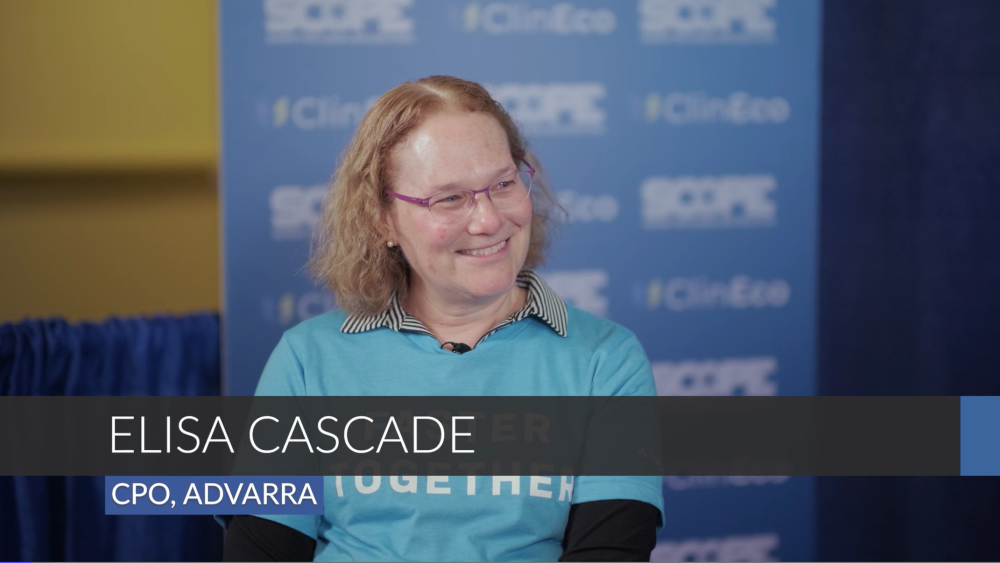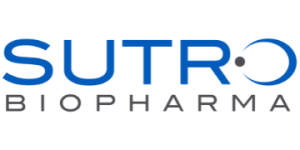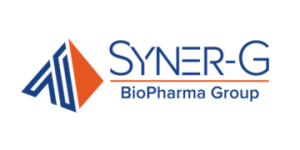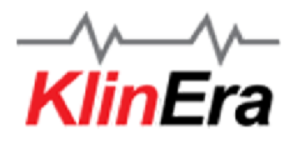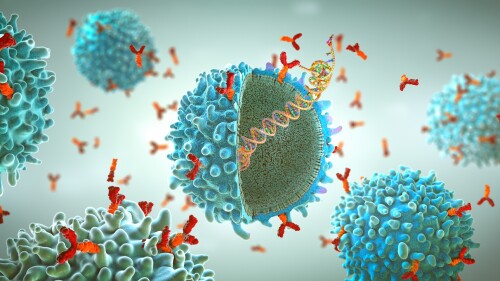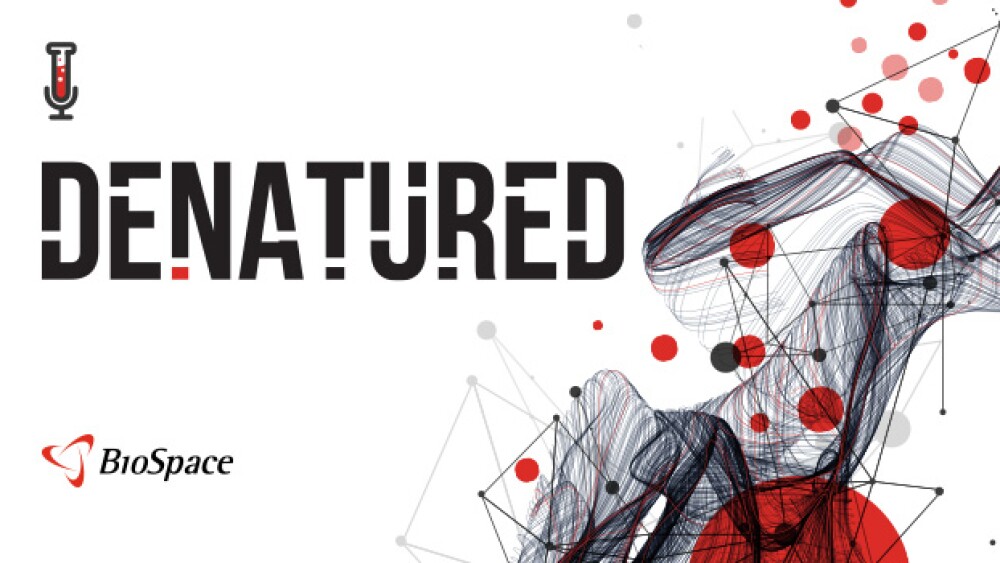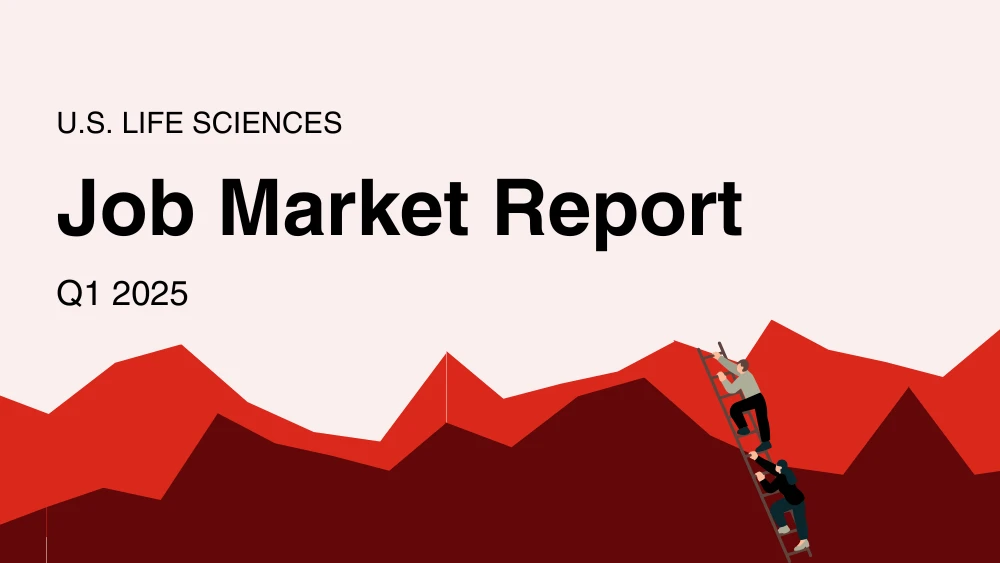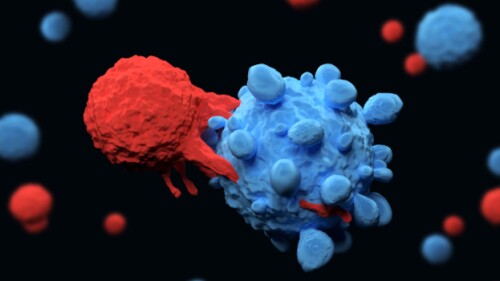Proquad is rarely a newsmaker from Merck’s earnings, but this time around, the U.S. has had a series of measles outbreaks. Sales of the vaccine were $539 million for the quarter, a 5% decline from the same period in 2024.
Where thousands of former Health and Human Services employees will work next is unknown, but biopharma companies likely aren’t the main destination. Two biopharma executives discuss potential landing spots.
Roche’s exposure to the tariffs is mostly limited to four medicines, three of which it already produces in the U.S., according to CEO Thomas Schinecker, who declined to reveal what these assets are.
In this discussion, our guests explore how recent regulatory changes are shaping the future of AI in drug development in the US market. Watch now.
The deal is a blast from the not-too-distant past, when special purpose acquisition companies were an easy way for companies to list on the public market with a bundle of cash to operate on.
Roche’s Genentech is betting on the Flagship Pioneering–founded company’s discovery platform called DECODE to find new targets for an undisclosed autoimmune disorder.
FEATURED STORIES
A cautionary tale illustrates how forging a deal with a Big Pharma can have unexpected and far-reaching tax consequences.
Elisa Cascade, CPO at Advarra explains why addressing the challenges faced by clinical research sites is vital for improving patient trust and the overall viability of clinical trials.
COUR Pharmaceuticals has been around a while, but not until last year did the company solidify behind its ultimate mission with a series A raise.
FROM BIOSPACE INSIGHTS
In a year when eradicated diseases are on the uptick in America, how will American children survive RFK Jr.’s vaccine scrutiny and inconsistency? Two experts call on pharma and regulatory bodies to rebuild trust.
LATEST PODCASTS
The FDA took center stage last week as it approved the first-ever MASH therapy and considered additional approvals for CAR-T therapies, whose safety the agency has been investigating since last year.
This episode focuses on a healthy discussion regarding the IRA, particularly the unintended consequences to small molecule development within the industry and for patients.
Heather, Greg and Tyler discuss a busy news week including Wegovy’s label expansion, biosimilars, surprise donanemab delays for Eli Lilly and speculate on election impact.
Job Trends
Eli Lilly and Company announced positive topline results from the QWINT-2 and QWINT-4 phase 3 clinical trials evaluating once-weekly insulin efsitora alfa in adults with type 2 diabetes using insulin for the first time and those who require multiple daily insulin injections.
Subscribe to Genepool
Subscribe to BioSpace’s flagship publication including top headlines, special editions and life sciences’ most important breaking news
SPECIAL EDITIONS
A new generation of checkpoint inhibitors is emerging, with some showing more promise than others. From recent TIGIT failures to high-potential targets like VEGF, BioSpace explores what’s on the horizon in immuno-oncology.
Peter Marks, the venerable head of the FDA’s Center for Biologics Evaluation and Research, has been forced out. In this special edition of BioPharm Executive, BioSpace takes a deep dive into the instability of the HHS.
Year-over-year BioSpace data show biopharma professionals faced increased competition for fewer employment opportunities during the first quarter of 2025.
DEALS
-
The Federal Trade Commission has asked for an additional 30 days for its review of Novo Nordisk’s $16.5 billion acquisition of Catalent, with the companies expecting to complete the merger by the end of 2024.
-
The Swiss drugmaker is paying $1 billion and committing up to $750 million in milestones for Mariana Oncology’s preclinical cancer pipeline and clinical supply capabilities, the companies announced Thursday.
-
Ono Pharmaceutical will pay $25.60 per share in an all-cash deal to buy Deciphera Pharmaceuticals for its potential blockbuster oncology drugs and U.S. sales infrastructure, the companies said Monday.
-
Citing anonymous sources involved in a Phase III trial, STAT News reported Sunday that MorphoSys’ pelabresib may worsen the risk of progression to acute myeloid leukemia, potentially putting Novartis’ proposed $2.9 billion acquisition at risk.
-
Is there a connection between Bristol Myers Squibb’s announcement that it will reduce its headcount by 6% and the company’s recent acquisitions of Karuna, Mirati and RayzeBio?
WEIGHT LOSS
-
Eli Lilly this week announced plans to sell single-dose vials of its weight loss drug Zepbound directly to consumers. Novo Nordisk could adopt a similar strategy for Wegovy as its CEO is set to testify Sept. 24 before the Senate health committee.
-
Siding With Novo and Lilly, Court Agrees to First Tackle ‘Cross Cutting Issues’ in GLP-1 LitigationsIn agreeing with Novo Nordisk and Eli Lilly, Pennsylvania judge Karen Spencer Marston said the court should first settle questions of gastroparesis diagnosis and sufficient warnings for side effects.
-
Through its online pharmacy LillyDirect, Eli Lilly announced Tuesday it will allow patients to purchase single-dose vials of Zepbound—without the autoinjector—at a 50% discount or more versus other incretin obesity treatments.
-
In this deep dive BioSpace dissects the global obesity and diabetes markets along with the growing pipelines that aim to serve them.
-
Patients taking Novo Nordisk’s blockbuster GLP-1 drug appear to be more likely to harbor thoughts of suicide or self-harm, especially if they are already suffering from anxiety or depressive disorders, according to a new study.
POLICY
-
United States Pharmacopeia is recruiting expert volunteers from academia, industry, regulatory and healthcare to develop, revise and approve medicine, dietary supplement and food ingredient standards and solutions used in more than 150 countries to improve global public health. The volunteers will serve from 2025 to 2030.
-
Massachusetts residents voted Tuesday against the Natural Psychedelic Substances Act, which would have seen some psychedelics, including psilocybin and dimethyltryptamine, legalized in the state.
-
Senator Elizabeth Warren told the Federal Trade Commission that the acquisition of contract manufacturer Catalent could increase Novo’s dominance over the hot GLP-1 market, reducing competition and increasing prices.
-
The U.S. Department of Justice alleged that Teva violated the Anti-Kickback Statute and the False Claims Act. The payment is in addition to the criminal penalty paid by Teva USA under its deferred prosecution agreement.
-
WuXi AppTec looks to unload its Philadelphia manufacturing sites and WuXi Biologics slows its rapid expansion in the U.S. as the companies await the Senate’s review of the BIOSECURE Act that threatens to cut them off from U.S. biopharma.
Learn the best tips, tricks, and practices to help yourself to get the first job after college life sciences industry right out of college in our comprehensive guide.
Discover the most in-demand pharma qualifications and how to use them to score your dream job in our comprehensive guide.
Instead of going through pharma job search websites, you should create a powerful LinkedIn profile. Check out Biospace to find out the benefits of having a strong LinkedIn Profile.
Despite the massive financing from venture capitalists that poured into Massachusetts in 2021, Bay State biopharma companies are struggling to find enough talent to fill the number of available jobs.
The use of body language during interview can ensure a good impression. Kinesics includes the use of posture, facial expression, movement, and gestures to communicate nonverbally.
With more and more people applying for remote positions, how can you stand out among the massive stacks of applications?
HOTBEDS
REPORTS
In this Employment Outlook report, BioSpace explores current workforce sentiment, job activity trends and the prospective job and hiring outlook for 2025, particularly as it compares to the previous year.
BioSpace’s third report on diversity, equity, inclusion and belonging in life sciences examines dramatic shifts in attitude around diversity initiatives.
CANCER
-
With $70 million upfront and more than $1.8 billion on the line, Roche will gain access to Flare’s drug discovery engine to bolster its oncology pipeline.
-
Truist Securities analyst Asthika Goonewardene in an investor note said data for anito-cel—particularly its safety profile—will help differentiate the CAR T therapy from Legend Biotech and J&J’s entrenched Carvykti in relapsed and refractory multiple myeloma.
-
In a tough fundraising space, cell therapy biotechs pursuing autoimmune indications review staffing to ensure the right expertise is in place to tackle the new disease area.
-
Despite the PDUFA date being extended by three months for Merus’ zenocutuzumab, Truist Securities analyst Asthika Goonewardene in a Tuesday note to investors said the delay is not a cause for concern with an approval expected.
-
Driven by the early approval of its updated COVID-19 vaccine, BioNTech far exceeded analysts’ expectations in the third quarter and reported its first quarterly profit in 2024. However, the German biotech also cut its outlook for the year.
NEUROSCIENCE
-
The FDA has three regulatory milestones in the next two weeks, including a decision on a subcutaneous formulation of an effective multiple sclerosis therapy.
-
Neurocrine Biosciences’ potential competitor to Bristol Myers Squibb’s KarXT improved symptoms of schizophrenia in a Phase II trial, but only at the low dose tested.
-
While approved by the Medicines and Healthcare products Regulatory Agency, the Alzheimer’s drug failed to win the backing of the U.K.’s National Institute for Health and Care Excellence, which said that its benefits were “too small to justify the cost.”
-
Psychedelic drug developers are undeterred by the FDA’s Complete Response Letter for the company’s MDMA therapy for PTSD, and experts expect Lykos will ultimately obtain approval.
-
On the heels of last week’s FDA rejection of Lykos’ MDMA-assisted PTSD therapy, Atai announced Tuesday positive preliminary results for its DMT-based treatment for depression from a Phase Ib study.
CELL AND GENE THERAPY
-
The FDA is facing four big target action dates in the final week of June, including one label expansion for a bispecific antibody and another for an investigational gene therapy.
-
The plethora of genes involved in obesity presents an intriguing opportunity for both gene silencing and ex vivo gene therapy approaches.
-
Results of a large Stanford Medicine study, published Wednesday in The New England Journal of Medicine, finds CAR-T therapies carry a low risk of secondary malignancies not related to the T cells.
-
Pfizer’s investigational Duchenne muscular dystrophy gene therapy, fordadistrogene movaparvovec, failed in a late-stage study to significantly improve motor function in patients versus placebo.
-
Given their seven-figure price tags, it’s not clear how accessible the would-be cures will be to U.S. patients on public or private insurance.











